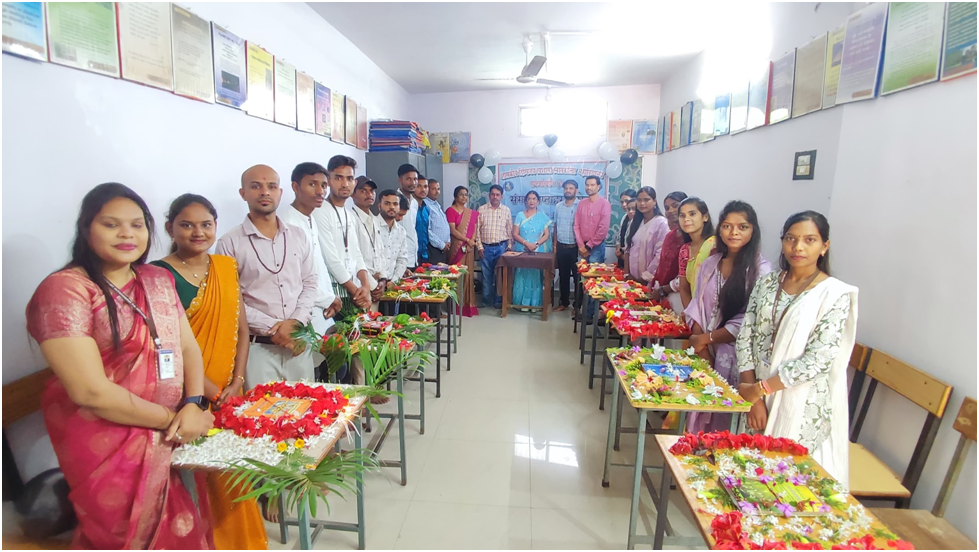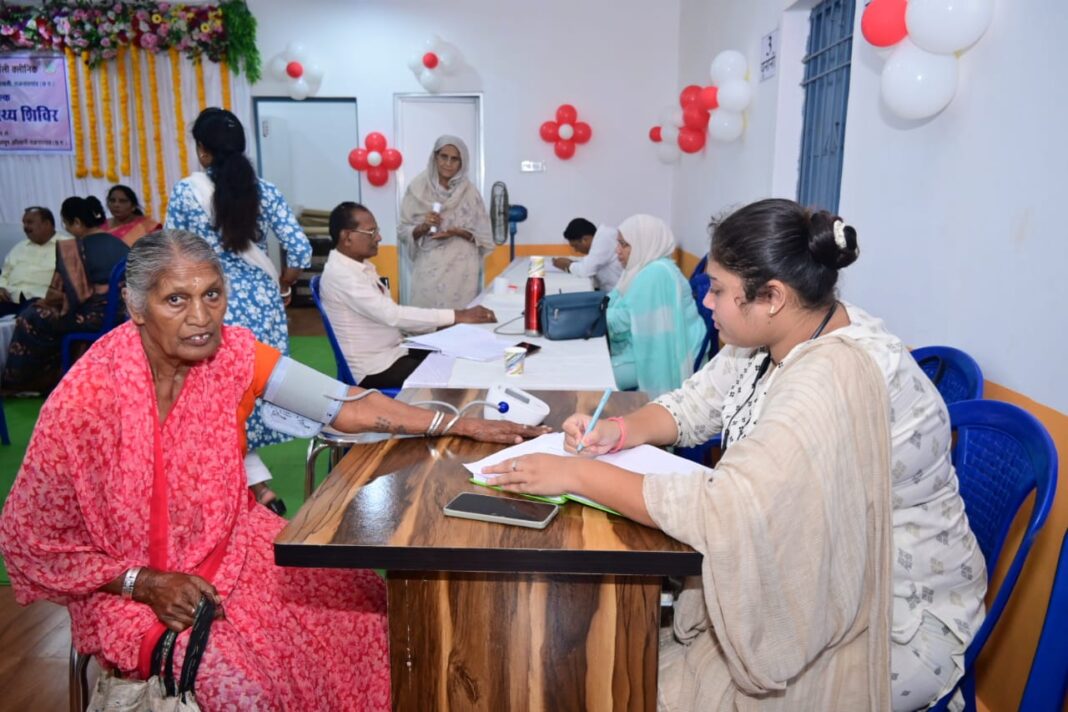Students Decorate Texts, Emphasize Preservation of Ancient Knowledge; Principal Highlights Sanskrit’s Role as the Mother of Indian Languages
Published on: August 23, 2025
By: BTNI
Location: Rajnandgaon, India
Under the guidance of Principal Dr. Suchitra Gupta, the Sanskrit Department of Digvijay College organized Sanskrit Week Day and the Grantha Raksha Sutra Bandhan festival with great enthusiasm on campus.
The program commenced with the chanting of Vedic Swastivachan by students, followed by a traditional worship ceremony before Goddess Saraswati, performed by Principal Dr. Gupta. The highlight of the event was the symbolic ritual of tying sacred threads (rakhi) on revered texts, symbolizing their preservation and protection. Students beautifully decorated classical works such as Samkhya Darshan, Yoga Darshan, Bhagavad Gita, and Tarkasangraha with colorful flowers and leaves.
Principal Dr. Gupta, while addressing the gathering, emphasized that Sanskrit is not merely confined to rituals but embodies the entire spectrum of knowledge and science. She also reminded students that preserving and safeguarding the very texts they study is their moral responsibility.
Also read- https://www.btnewsindia.com/chhattisgarh-tourism-board-showcases-states-potential-at-iato-convention/ https://www.btnewsindia.com/chhattisgarh-approves-166-mahatari-sadan-to-empower-rural-women/
On this occasion, Dr. Shailendra Singh, Head of the History Department, urged students to converse in Sanskrit to keep the language alive in everyday interactions. Dr. Anita Shankar, Head of the English Department, encouraged students to stage dramatic performances based on Sanskrit’s rich literary heritage to make learning engaging and dynamic.
The program was ably conducted by Dr. Lalit Pradhan, Head of the Sanskrit Department, while overall arrangements were managed under the direction of Dr. Mahendra Nagpure and Dr. Krishnadutt Tripathi, with active participation from M.A. and B.A. Sanskrit students.
The celebration not only honored Sanskrit’s timeless legacy but also reinforced the commitment of students and faculty towards the preservation of ancient wisdom.




